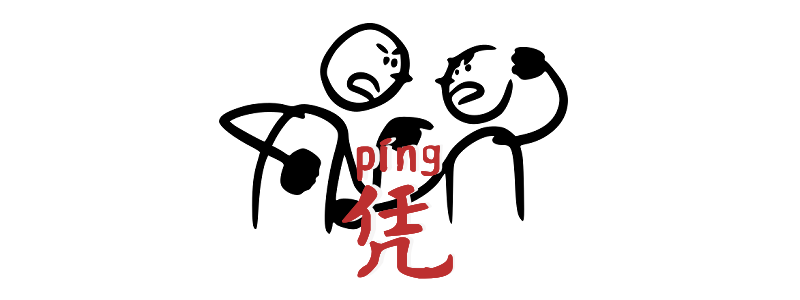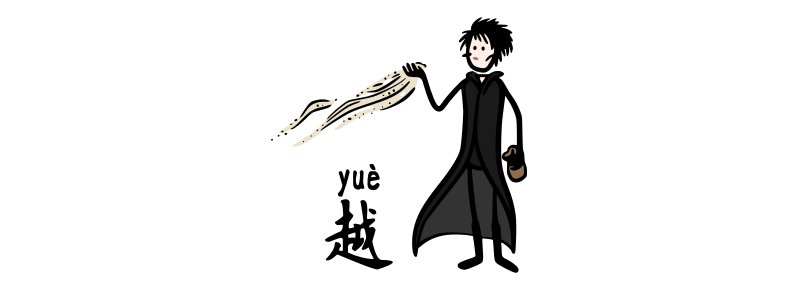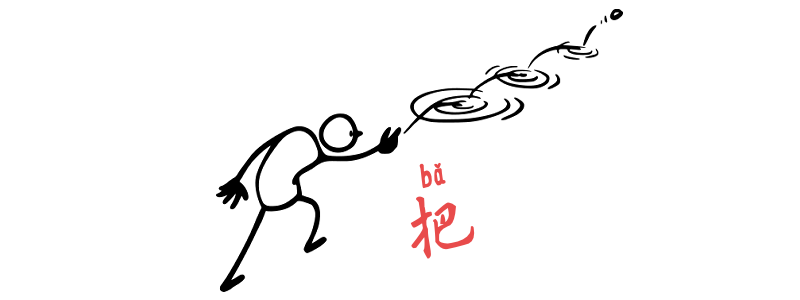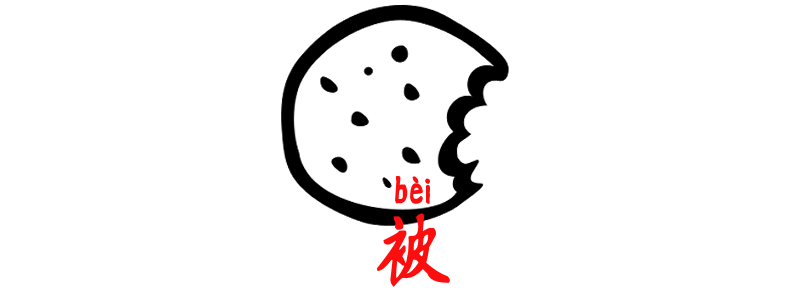Grammar Point:The word 憑凭 píng in Chinese is a preposition or verb used to indicate “relying on,” “based on,” or “depending on.” It can also express “by means of” or “according to.” It’s versatile and commonly used in formal or semi-formal contexts. Structure 憑凭 píng + N / Noun Phrase + V It indicates using something as…
Author: tiffany
More and More 2
Grammar Point:In Chinese, the phrase 越 yuè…越 yuè… is commonly used to express that the degree of something increases with another situation. Structure – 越 + Adj. + 越 S + 越 yuè + Adj + 越 yuè + Adj or V It is important to note that 越 yuè…越 yuè… should not be followed…
The functions of 把 bǎ 5 (Advanced)
Grammar Point:There are 3 functions of 把 bǎ in Chinese. Determination, command, and doing a movement on something that makes a change to it. If you’re not familiar with the basic foundation of 把 structure, I suggest reading the following articles first. Structure (S) + 把 + O + Verb + 了 This structure may…
Chinese Verbs
In this article, we will discuss the features of Chinese verbs. Verbs in Chinese, like in English, can be divided into three major categories: the verb 是 shì meaning “to be,” the verb 有 yǒu meaning “to have,” and a broad set of verbs that can be loosely referred to as action verbs. * Some…
The Passive Sentence 4 (Advanced)
If you are not familiar with how to use passive sentences in Chinese, I suggest you read the following articles first. This will help you understand the usage of advanced passive sentences. Structure S + 被 + O + 所 + V Phrase This is a highly formal expression of the passive voice, typically used…
就 vs 才
就 jiù and 才 cái have many similar functions, but not the same, which confuses many Chinese learners. In this article, we are going to talk about 7 common comparisons of 就 jiù and 才 cái. 1. Time + 就/才 就 jiù 才 cái Earlier than expectedIf the action happened, you need to put 了…
The functions of 把 bǎ 3
Grammar Point:There are 3 functions of 把 bǎ in Chinese. Determination, command, and doing a movement on something that makes a change to it. If you’re not familiar with the basic foundation of 把 structure, I suggest reading the following articles first. Structure 1 The following structures are all about doing a movement on something…
Degree complements 2
Grammar Point:A “程度補語补语 chéngdù bǔyǔ” or “degree complement” is used to intensify or modify the degree of an action, the nature of a thing, or the degree reached in a state. Why do we need it Structure Adj. or Mental verbs + Degree Complements It is used to suggest that a situation is serious or…
Stative verbs (adj.)
What is Stative Verb? Stative verbs (also known as Chinese adjectives) are used to describe the mood, weather, appearance, or characteristics of a person or an object. For example: 累lèi累lèi tired 漂亮piàoliàng漂亮piàoliang pretty 熱rè热rè hot 開心kāixīn开心kāixīn happy 難過nánguò难过nánguò sad 興奮xīngfèn兴奋xīngfèn excited The Difference Between Chinese and English In English, we describe people or things using…
The functions of 把 bǎ 4
Grammar Point:There are 3 functions of 把 bǎ in Chinese. Determination, command, and doing a movement on something that makes a change to it. If you’re not familiar with the basic foundation of 把 structure, I suggest reading the following articles first. Structure Things + 把 + O + Verb + Something 這zhè雙shuāng鞋xié把bǎ我的wǒde腳jiǎo磨mó破pò了le这zhè双shuāng鞋xié把bǎ我的wǒde脚jiǎo磨mó破pò了leThese shoes have…







